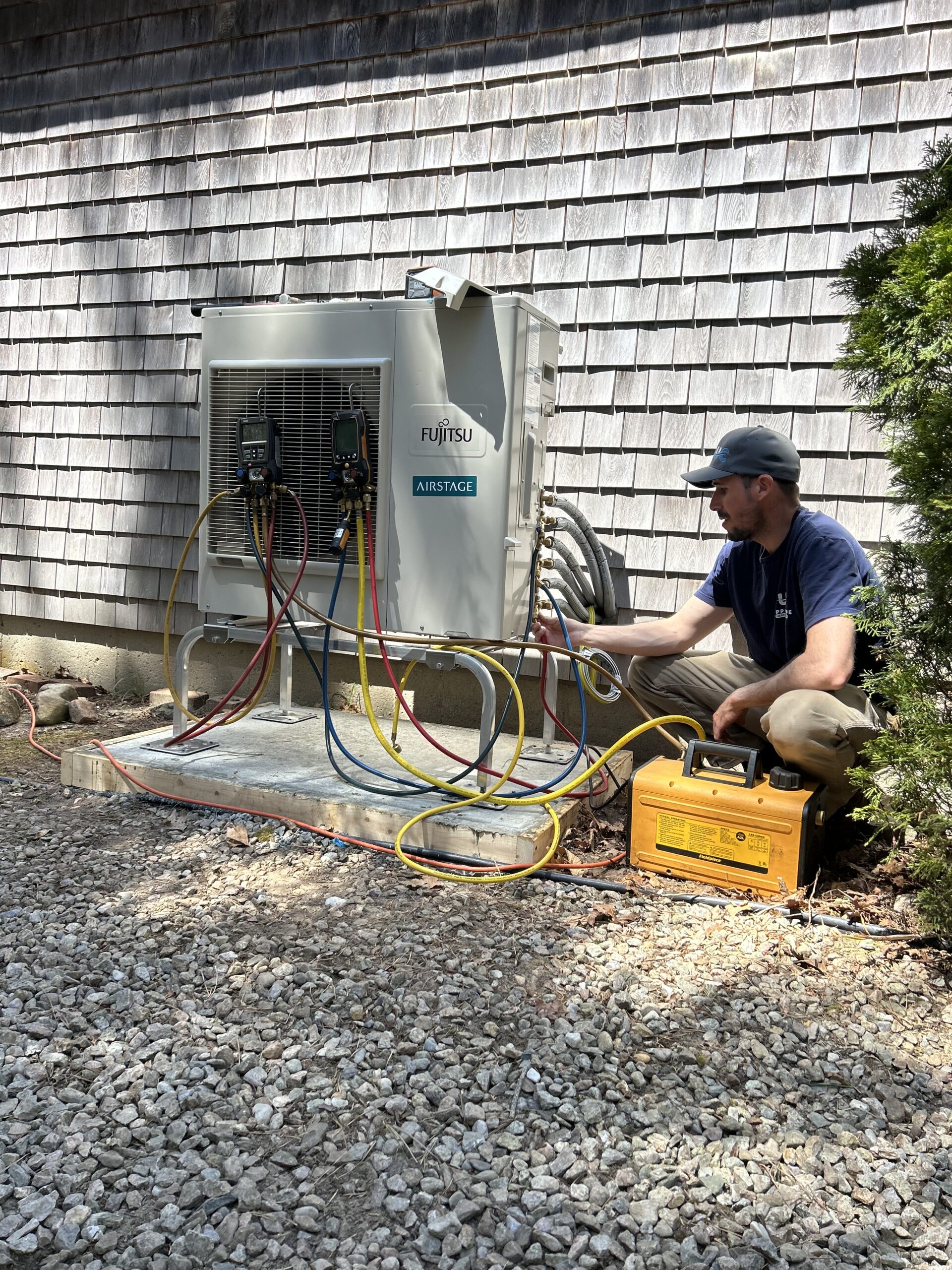The Environmental Benefits of Switching to a Heat Pump

Homeowners today are more eco-conscious than ever. Rising energy costs, climate change, and a growing interest in sustainable living have led many families to rethink how they heat and cool their homes. Among the most effective solutions for both comfort and the environment are heat pumps.
Heat pumps have surged in popularity not only because they provide year-round efficiency but also because they represent one of the greenest options for home heating and cooling. By reducing energy consumption, lowering greenhouse gas emissions, and helping households transition away from fossil fuels, heat pumps are paving the way for a cleaner, more sustainable future.
Let’s explore the environmental benefits of switching to a heat pump and why this technology is a win-win for homeowners and the planet.
What Makes Heat Pumps Different?
Unlike traditional heating systems that burn fuel (like oil, gas, or propane) to generate warmth, heat pumps work by transferring heat. In the winter, they extract heat from the outside air or ground and move it indoors; in the summer, they reverse the process to keep your home cool.
This method requires far less energy than generating heat from scratch, making heat pumps highly efficient. In fact, modern heat pumps can deliver up to three times more heating energy than the electricity they consume.
This efficiency is at the core of their environmental benefits. By using less energy, heat pumps directly reduce your household’s carbon footprint.
Reduced Greenhouse Gas Emissions
One of the biggest environmental advantages of heat pumps is their ability to significantly cut greenhouse gas emissions.
-
Traditional heating systems: Furnaces and boilers burn fossil fuels, releasing carbon dioxide (CO₂) and other pollutants into the atmosphere.
-
Heat pumps: Since they run on electricity and don’t rely on combustion, they emit no on-site CO₂.
Even when powered by a grid that still uses fossil fuels, heat pumps generally produce far fewer emissions than oil, propane, or gas heating systems. As more electricity is generated from renewable sources like wind and solar, the environmental impact of heat pumps becomes even smaller.
According to the U.S. Department of Energy, switching from an oil furnace to an electric heat pump can reduce household carbon emissions by up to 50% or more depending on your region’s energy mix.
Energy Efficiency = Less Waste
Energy efficiency is central to eco-friendly living. The more efficient a system is, the less energy it wastes, and the smaller the strain on natural resources.
Heat pumps boast efficiencies of 300% or more, compared to about 90% efficiency for modern gas furnaces and 70–80% for older systems. That means they use less energy to produce the same—or often greater—comfort levels.
This efficiency translates to:
-
Reduced demand on power plants.
-
Lower household energy consumption.
-
A smaller environmental footprint for every homeowner who makes the switch.
Supporting Renewable Energy Transition
Heat pumps also play a critical role in the transition to renewable energy. Unlike oil and gas heating, which will always depend on finite fossil fuels, heat pumps are compatible with renewable electricity sources.
Imagine pairing your home’s heat pump with rooftop solar panels or subscribing to a green energy program through your utility company. With this setup, your home can be heated and cooled almost entirely with renewable power—an enormous step toward carbon neutrality.
By choosing a heat pump today, you’re not only reducing emissions now but also future-proofing your home for a cleaner energy landscape.
Cleaner Indoor and Outdoor Air
Environmental benefits don’t stop with carbon emissions. Heat pumps also contribute to cleaner air quality:
-
No combustion byproducts: Furnaces and boilers release nitrogen oxides and carbon monoxide, which can contribute to smog and indoor air pollution. Heat pumps produce none of these emissions inside your home.
-
Reduced dependence on wood or oil: In rural areas, switching from wood stoves or oil furnaces to heat pumps decreases particulate matter that harms outdoor air quality.
This means healthier lungs, fewer asthma triggers, and cleaner communities—benefits that are just as important as cutting carbon.
Longevity and Sustainability of Materials
Another often-overlooked environmental benefit is the durability of heat pumps. A well-maintained system can last 15–20 years, reducing waste associated with frequent replacements. And because heat pumps consolidate heating and cooling into one system, they reduce the need for multiple separate appliances.
Additionally, many modern heat pumps use refrigerants with lower global warming potential (GWP) compared to older models. Regulations continue to push the industry toward greener refrigerants, making each new generation of heat pumps more environmentally friendly than the last.
Encouraging Sustainable Living
For homeowners looking to live more sustainably, switching to a heat pump is a tangible, impactful step. It’s not just about lowering bills—it’s about aligning your home with eco-friendly values.
Heat pumps support:
-
Eco-conscious lifestyles: Reducing reliance on fossil fuels.
-
Community sustainability goals: Many towns and states are encouraging adoption of heat pumps to meet climate targets.
-
Generational impact: By reducing your home’s emissions, you contribute to a healthier environment for future generations.
Incentives That Make the Switch Easier
The environmental case for heat pumps is already strong, but many governments and utilities also provide rebates, tax credits, and other incentives to encourage adoption. These programs make it easier for homeowners to transition to a greener system while reducing upfront costs.
By taking advantage of these programs, you not only save money but also contribute to broader environmental goals in your region.
Switching to a heat pump is a powerful decision for the environment. By reducing greenhouse gas emissions, improving energy efficiency, and supporting the transition to renewable power, heat pumps are one of the most eco-friendly ways to heat and cool your home.
Every home that adopts this technology is a step closer to a more sustainable future. Whether you’re motivated by reducing your carbon footprint, improving air quality, or simply living in a way that aligns with eco-friendly values, a heat pump delivers.
If you’re ready to make your home more sustainable while enjoying year-round comfort, now is the perfect time to explore the benefits of installing a heat pump.

